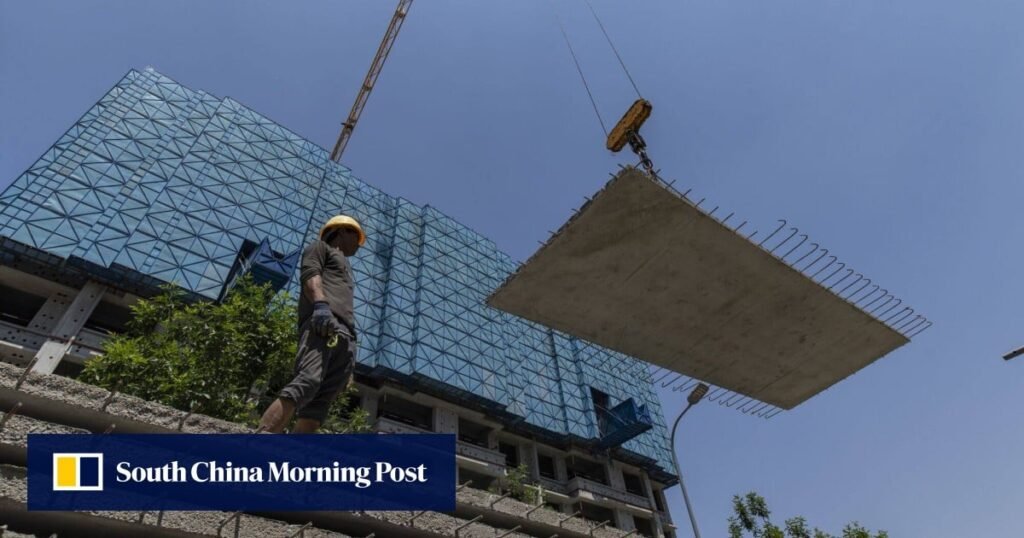A larger fall of property investment and a slowdown of consumption continued to haunt China’s economic activities in April, despite Beijing having stepped up actions to boost consumer goods sales, upgrade equipment and solve the widely watched property slowdown.
Property investment, currently proving to be a major drag on the economy, dropped by 9.8 per cent year on year in the first four months of the year, compared to a fall of 9.5 per cent in the first quarter.
China’s overall fixed-asset investment, which includes major items including infrastructure construction, manufacturing and property spending, rose by 4.2 per cent in the first four months of the year, compared to a rise of 4.5 per cent in the January-March period.
Elsewhere, China’s industrial output rose by 6.7 per cent from a year earlier last month.
It has become an even more immediate task for the government to fend off uncertainties to boost confidence if it wants to meet the 5 per cent growth target
“China’s economic data suggests further pressure on the economy from the deteriorating real estate sector and weakening consumption,” said Gary Ng, senior economist at Natixis Corporate and Investment Bank.
“While industrial production has continued to increase, the soft demand domestically and internationally may fuel the risk of overcapacity, meaning corporate profits and prices may further fall.
“It has become an even more immediate task for the government to fend off uncertainties to boost confidence if it wants to meet the 5 per cent growth target.”
In the first four months of the year, the floor space of new homes sold fell by 20.2 per cent year on year, while overall sales value of new homes fell by 28.3 per cent.
“This set of macro data, combined with the weak credit data in April, may push the policymakers to take stronger actions to boost domestic demand. The likelihood of a rate cut in the second quarter is rising,” said Zhang Zhiwei, president and chief economist at Pinpoint Asset Management.
Meanwhile, the overall urban unemployment rate fell to 5 per cent in April, down from 5.2 per cent in March.
“Certain indicators like retail sales saw a slowdown due to factors such as holidays and a higher base in the same period last year,” said NBS spokeswoman Liu Aihua.
“However, China is facing a noticeable increase in the complexity, severity and uncertainty of the external environment. Despite the continued upwards trajectory of the economic recovery, it still encounters numerous difficult challenges.”
In April, China’s production of electric vehicles and integrated circuits rose by 39.2 per cent and 31.9 per cent year on year, respectively.
“Geopolitical tensions and trade barriers may also challenge the exports of new growth sectors, such as electric vehicles, batteries and solar panels,” added Ng.
More to follow …

